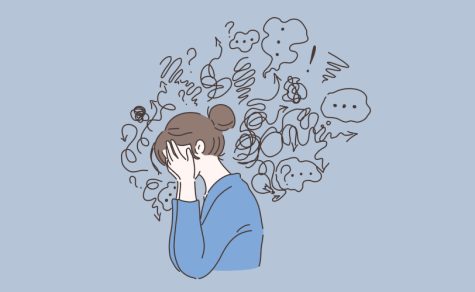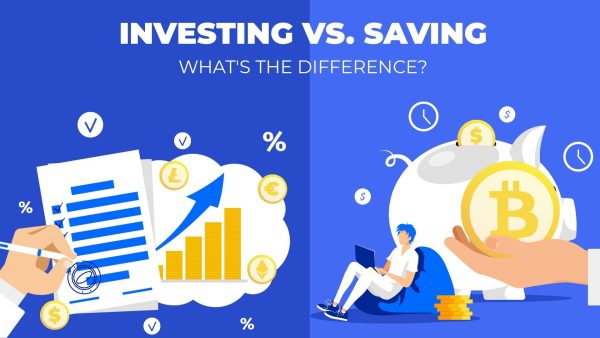Teen’s mental health in NYC
“Mental health is difficult for teens, you know, although you guys have so many more opportunities, there’s still so much pressure and so many standards in society, and teens just want to be accepted, and also want to have fun to enjoy their teenage years.” said an anonymous worker in NYC well.
These days some parents can’t notice their teenager’s struggle with mental health, since teens don’t express how they feel.
“Well, teenage brains are still developing… teens are already going through the process of physically trying to figure out who they are. The frontal lobe isn’t developed yet for teens and that is what controls emotions. And all of these things, additionally, social media just sort of adds to all the insecurities that every young person could have,” said the iSchool guidance counselor Ms Colon.

All teens at some point have social media in order to blend in and be like the others. Social media plays a big role in our lives, however, it may not influence us in the best way possible. Teenagers usually compare themselves to models, influencers, etc. But what they don’t realize is that many of them with their perfect hair, nose, lips and their hourglass bodies have gotten plastic surgery in order to look the way they do.
Some teens might get hate comments and get bullied on the way they look or act. Social media is a way to hide our true selves from reality. Teens only want to be accepted into this generation.They want to blend in, because some people might call them boring, lame or a boomer.
“I think that if young people would just get off their dang phones and just not be looking down all the time… Because people are posting the best pictures, the best videos, and you’re feeling left out because you weren’t a part of that,” said Ms. Colon.
As women of this generation, we struggle with sexual comments in our daily lives. People are always staring at us as if we were weird. Some disgusting, grow man stare at teens’ bodies in a sexual way, they can literally have a daughter the same age as the teen, but they don’t care. Some men are even repulsive that they actually touch girls.

“There was a man that touched me in the bus, he touched my ass. I felt shocked, I didn’t know how to react so I just stayed still. But the worst part was that I didn’t know who to tell because if I told people, they might have been like ‘you were searching for it dressing like that’ dressing like what with leggings and an oversized sweater. People are seriously messed up, and that’s what also messed up my mental health because from there on, I couldn’t get on the bus without being scared of seeing that man again,” said an anonymous student at the iSchool.
Occasionally, teens can be traumatized by others’ actions. Family, friends and relationships can be overwhelming at a young age. If the relationship isn’t healthy, violent, controlling, or toxic, it can affect the way a teen sees the world in the future.
According to the Mental health Center, “An increasing body of research demonstrates that negative family relationships can cause stress, impact mental health and even cause physical symptoms.
Research has demonstrated that non-supportive families can detract from someone’s mental health and or cause a mental illness to worsen.”
When it comes to mental health, abusive relationships within a family can affect a child’s future. “Passing boundaries can be considered abuse to teenagers, since we put ourselves in a cell, in a cell where we aren’t the best version of ourselves. We put ourselves in a position similar to turtles, we hide, we hide because we want to fit in. Be like the rest.” said a freshman at NYC museum high school (Eddie Suave)
Parents can also affect a teenager’s well-being; some parents cannot always understand a teen’s perspective. Many teens don’t know how to communicate with their parents. Parents of other ethnicities that aren’t the caucasian culture put a lot of pressure on their kids, since they need to get good grades, good manners, and be humble, etc.
“Parents sometimes don’t know what they’re saying to their children, and I’m being really honest with that because even the smallest discussions, they can lash out on you. They can call you names,” said Janet Martinez, a freshman at the iSchool.
Many adults from past generations may not believe that mental health is a serious issue. Since they think it is all in your brain, if you tell them, you seem weak, but if you don’t tell them they get upset about why we don’t share our feelings. They usually tell teens to just not focus on it, which sounds easy, but it’s harder to perform. Confessing our feelings to our parents/guardians can be scary and stressful for teenagers.
Since as kids there are many things that we have to carry on our shoulders. We are expected to have great grades, never make mistakes, and never act like we’re having a dreadful day. If so they will lecture you saying that we are pathetic at thinking or doing any of those things.

“I think friendships are supposed to be supported. Friendships are supposed to be your cheerleaders. Friendships are also supposed to be your reality check…if you feel as if you’re in competition with your friends, if you feel as if your friends are being nothing but critical, if you feel as if your friends are being petty and nasty, then that’s not a healthy friendship,” said Ms. Colon.
According to WebMD, here are 8 signs of having a bad friend:
- Overly competitive with you
- Likely to encourage bad behaviors
- Unreliable
- Combative (like to start fights)
- Rude
- Mean or degrading (make you feel bad)
- Prone to gossip
- Likely to bully you or others
WebMD says, “Humans aren’t perfect, and this extends to friendships. However, when interactions with a friend are overwhelmingly negative, you may be dealing with a bad friend. While admitting you have a bad friend can be disappointing, there are steps you can take to move forward. Recognizing the types of bad friends and the signs of a toxic friendship, as well as moving on from the relationship, will lead to your improved health and well-being.”
Many teens have trust issues, that are built when someone you thought would never hurt you, hurts you in the worst way possible. “Trust issues can make people overthink about friends, family etc” said an anonymous student at iSchool. Overthinking is a big thing most teens overthink a lot more than usual. Overthinking can be a good thing but mostly it just hurts you because we’ll think of a million scenarios that could happen. The scenarios are mostly bad and we’ll expect to be mad, sad, disappointed, etc.
“If you expect disappointment you can never really get disappointed” – said Zendaya a famous actor
Many times school can also affect mental health since they push us to be good or to be like a smart student. As stated in Standford News, “Their study found that too much homework is associated with: • Greater stress: 56 percent of the students considered homework a primary source of stress, according to the survey data. Forty-three percent viewed tests as a primary stressor, while 33 percent put the pressure to get good grades in that category”
Mental health is a serious issue that not many pay attention to. There have been many cases that teenagers do not notice that they have unhealthy mental health, or in other cases they don’t want to treat it. Mental Health is something that we should take accountant too, especially towards teenagers. Teenagers are still developing their frontal lobe. According to ThE Lobes and Limbic System, the frontal lobe is the one part of your brain that controls your emotions. Teenagers these days sometimes don’t know what to do with their emotions that they’re experiencing.
If you struggle with mental health, don’t be scared to speak up. Many people who struggle with their well-being can gather up their emotions and explode.
One of the symptoms of bad mental health stated by Mayo clinic, “Signs and symptoms of mental illness can vary, depending on the disorder, circumstances and other factors. Mental illness symptoms can affect emotions, thoughts and behaviors.
Examples of signs and symptoms include:
- Feeling sad or down
- Confused thinking or reduced ability to concentrate
- Excessive fears or worries, or extreme feelings of guilt
- Extreme mood changes of highs and lows
- Withdrawal from friends and activities
- Significant tiredness, low energy or problems sleeping
- Detachment from reality (delusions), paranoia or hallucinations
- Inability to cope with daily problems or stress
- Trouble understanding and relating to situations and to people
- Problems with alcohol or drug use
- Major changes in eating habits”
If you see anyone with any of these symptoms, try to make them their day. Talk to them or hug them. Make them feel welcomed and noticed in the world. If we don’t do anything to help others their mental health can worsen. Not only impacting their lives, but others. Sometimes, family can help with these situations. There are parents who don’t understand their children, but it doesn’t mean we can’t help them and ourselves by distracting our minds by doing fun activities with our family.
We also have our friends. Friends can have a big impact on our daily lives. They make our lives worth living. Friends allow us to be happy and be ourselves around them 24/7. They allow us to have fun and forget about the struggles that we go through. In agreement with Newport Academy, “Peer friendships can also help teenagers navigate difficult situations.
A 2021 study found that adolescents who had strong teen friendships prior to the pandemic were less likely to internalize the stress of isolation and social distancing. These connections helped reduce teen loneliness, depression, and anxiety.
However, having friends isn’t always the solution for our well-being. Music is another remedy for these situations. “Music to me is another language when it comes to my Mental Health. It allows me to travel to different types of world with its beats and melodies. A way that allows me to become distracted from the issue that I have in the real world,” said an anonymous student at the iSchool.
Animals have been another way to help people with their mental stability. Animals allow us to have fun, enjoy ourselves, create new memories, and more. Support animals are a way to help people create friends that won’t judge you since they can’t talk or mistreat you in any way. Animals cuddle with you, kiss you, and might pee on your bed but that makes us experience new things in life.
NYC iSchool’s Guidance counselor Ms. Colon has provided us with many ways to improve our mental health that we have stated in our article. One of the resources she has provided us was NYC Well – a network that allows you to call them and talk about anything you feel comfortable talking about. They will listen to your issues and help in any way to fix the problems you may have. So we decided to call them to learn more about how we can improve the mental health of teens in NYC. NycWell informed that, “At any hour of any day, in almost any language, from phone, tablet or computer, NYC Well is your connection to get the help you need:
- Suicide prevention and crisis counseling
- Peer support and short-term counseling via telephone, text and web
- Referrals and warm transfer to other services
- Follow-up to check that you have connected to care and it is working for you”
Thankfully, here at the iSchool there are many resources to help with our mental health and physical health. If you ever need any help, you can talk to one of your trusted teachers, advisor, guidance counselor, principal, and more.











